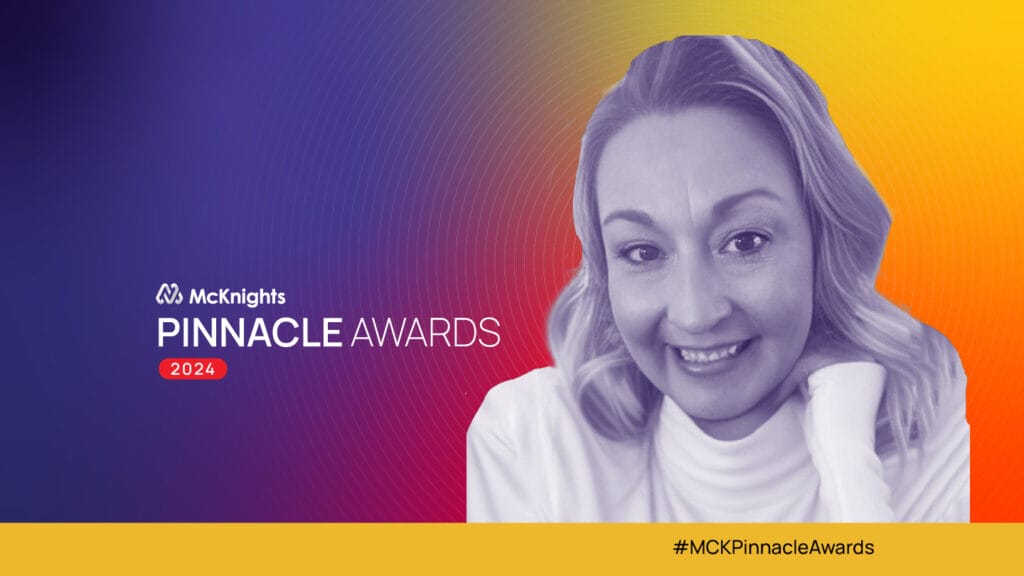
During a time when payment rates and the staffing crisis are stifling home care growth, Homewatch CareGivers is thriving. During the first quarter of 2023, the company, which offers both medical and nonmedical home care services, signed six new franchise agreements for a total of seven territories.
Brand President Todd Houghton, who joined the company in November 2022, believes the aging of the population and people’s desire to age in place are only enticing more potential owners. And with the company’s emphasis on teaching franchisees the keys to recruit and retain employees, particularly nontraditional ones, the company is poised to increase its staff. McKnight’s Home Care Daily Pulse sat down with Houghton to find out more.
McKnight’s Home Care Daily Pulse? How do you account for growth in the first quarter given the concerns about a recession and the lingering pandemic?
Houghton: I definitely think that [new franchisees are] looking at the overall economics of the business and understanding that there’s still going to be an opportunity to have a successful business with good revenue trajectory, based on the population, the 65-plus population that’s growing every day. So they’re looking at those numbers and seeing longevity. From my seat, I’ve been doing this quite a while and been through some of these recessionary times before. When it comes to client care, patient care, there’s always going to be that need. And so even when if we go into a recessionary time, there’s still that growth in the business.
McKnight’s Home Care Daily Pulse: How is the workforce shortage hampering the growth of Homewatch?
Houghton: If we look back to the last few years, the pandemic definitely did affect people in the workforce. We were being proactive and designing programs for our franchisees to go out and get what may be nontraditional caregivers but having the right training material to make them great caregivers. I always say we probably all step into a coffee shop a couple times a week and the barista can be the best future caregiver but never knew how to get into caregiving. And they may already be caring for their parents or their grandparents at home and working part-time. And so we’ve developed programs to really draw those people in to home care and give them the right tools and be able to certify them to be a caregiver. So that’s helped our segment a lot, helped our company a lot.
McKnight’s Home Care Daily Pulse: What’s your secret? How do you teach recruitment and retention?
Houghton: We just launched a brand-new recruiting program for our franchise network, to really, as I say, help them figure out how to go out and find those nontraditional caregivers, or people that might want to be a caregiver. And then it involves all of the training within that through in-person training. We have over 200 courses out in our university to help train and educate them and get them certified, the Homewatch way, to be a caregiver. So that’s that’s an essential part of the building block to get people into caregiving and be part of Homewatch CareGivers. On the other side of it, we’ve also launched a lot of focus on retention. So we’re doing advanced training. If you will, so certifying people as specialist in certain care, such as dementia or in some of the chronic illnesses as well so they see a future as well. They have the opportunity to grow with Homewatch and become more skilled in what they do.
McKnight’s Home Care Daily Pulse: The Centers for Medicare & Medicaid Services recently proposed a rule regarding home- and community-based services. There’s been a bit of a backlash on the provision that 80% of Medicaid go to wages. What is your opinion on this?
Houghton: I think it’s challenging for a business operator to operate underneath that model. There’s still some vagueness in there. Does 80% include all of the office’s liabilities around payroll taxes and data or is that on top of that 80%? So if you’re starting to creep into the 85% or 87% really going into that direct care, it doesn’t leave much for the operational side of things — to have your staff nurses that are doing the client care coordination, or even your client care coordinators or your other office staff, your schedulers — that would independently come out of that other 15 or 20% that’s leftover. So it’s gonna be a struggle to operate effectively and efficiently and provide the best quality care in addition to the hands-on piece of care. I think it’s still early. We’ll see where it goes. And I hope that it continues to go in the right direction.
McKnight’s Home Care Daily Pulse: Your company offers a lot of different types of medical care. Do you see yourself embarking on hospital-at-home?
Houghton: Yes, absolutely. We are already working with some of the larger hospital networks and how we can be a bigger part of what they’re doing. Everything from the discharge process through being at home based on diagnosis, whether it’s seven- 14- or 30-day type of support for that person before they take on private home care. We’re definitely working on things like that.
McKnight’s Home Care Daily Pulse: That would be really kind of revolutionary, right, for a personal care, home care franchise organization to get into that?
Houghton:It is the future. And I think those of us that are in the in the top 500 companies are actively figuring out how we can be more involved in that process.
Editor’s note: Peer-to-Peer is a feature from McKnight’s Home Care Daily Pulse in which we talk to the leaders in home care, your peers, about their operational initiatives, efforts and ideas. If you think someone in home care would make a good subject for Peer-to-Peer, please email Liza Berger at [email protected].


